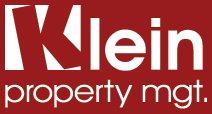Dogs in Your Community
Living within a community can be challenging for many reasons and your neighbor’s dog “Sir Barksalot” can be one of those very reasons. I have found that generally residents are even more passionate about their pets than they are about other members of their family. Tell someone that you are going to ban their dog and all of a sudden “them’s fightin’ words.” Boards of Directors do have the power through the condominium by laws to limit pets being allowed within the community or the building, the breed and size of dogs, and how pets are allowed to be in the common areas of the community or building. In some Co-ops where Boards of Directors or Interviewing Committees are allowed to interview potential residents (shareholders), some will even arrange an interview/meeting with the dog to make sure that they are a right fit for the building where pets are allowed.
One of the biggest issues for many Boards and homeowners is the lack of responsibility of some dog owners for not picking up after their pets. Some communities have gone to the extent of swabbing each dogs’ mouths and performing a DNA test so that if any owners leave a little bit of their dog’s refuse behind, they can have it tested and the offending owner can be fined accordingly, a process which can be quite costly.
To Leash or Not to Leash, that is the Question.
The answer is always to leash. Even if you think that your dog is so well behaved that it does not need to be on a leash, that would be incorrect. Dogs can act erratic at times and without any notice or provocation can run and bite, or even just scare someone, which could cause irreparable harm.
That Barking is Making me Crazy
Don’t allow your dog to “nuisance bark.” The exact legal definition of nuisance barking varies depending on the laws where you live. Most laws regarding nuisance barking require that a dog bark for a specific length of time within a specific time frame.
Whether a dog’s barking falls into the definition of nuisance barking may also depend on the time of day; some areas prohibit nuisance barking 24 hours a day, while others consider barking a nuisance only if it occurs during specific hours, such as late evening through the early morning hours. Consult your local laws to determine the legal definition of nuisance barking in your community.
A homeowner association may be liable for permitting dangerous dogs to remain on the common areas and private streets owned and controlled by the association. The Board of Directors of these associations have a fiduciary duty to manage and operate the common areas, including making them safe and warning of any known dangerous conditions, even making sure that all dogs are properly leashed and if not the offending resident being properly notified of the infraction and proper rules of conduct.
Service and Emotional Need Animals
They cannot say no if your pet is a service animal. The Americans with Disabilities Act (ADA) and most states require that condominium associations make reasonable accommodations, including bending the rules, for residents’ disabilities. Service animals go beyond seeing-eye dogs. Sufferers of post-traumatic stress syndrome and anxiety, for example, have been prescribed Emotional Support Animals by their doctors. If this is your case, and a doctor’s letter backs it up, you should be allowed to keep your animal. The condominium association must make the accommodation and should not overstep its bounds by asking too many questions about your health and disability. Unfortunately, with that being the case, this has become an area of abuse by those who do not really need an animal for emotional support but have found a loophole in some cases.
So the moral of the story is to be respectful to your neighbors and leash your dog, pick up after them, and try to teach them not to continually bark. And with that said, always use sunscreen.
Klein Property Management has managed properties for years. We have special and unique insight on setting up the rules and regulations, including the guidelines your community needs to maintain happy homeowners, pet owners and pets. For more information about managing or designing your property, contact Klein Property Management at (732) 446-0611 or visit us at https://kleinpropertymanagement.com/




